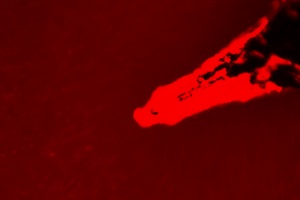Dr. Kyle Allen and Dr. Jon Dobson recently received an R21 research grant from the National Institute of Arthritis and Musculoskeletal and Skin Diseases, part of the National Institutes of Health. The grant, which supports exploratory and developmental research projects, was ranked in the 1st percentile by peer-researchers in a similar research field. This support of Dr. Allen and Dr. Dobson’s collaborative work will help to further develop the group’s magnetic nanoparticle-based technique to collect osteoarthritis biomarkers (termed magnetic harvesting).
Diagnosis of early-stage osteoarthritis, a disease stage where emerging therapeutics have demonstrated potential to reduce and prevent OA progression, remains a significant clinical challenge. Promising biomarkers and diagnostics of osteoarthritis have been identified in urine and serum; however, serum and urine level changes are not specific to an arthritis-affected joint, may not relate to joint-level concentrations of the same biomarker, and may not be detectable at the earliest stages of disease. Direct assessment of molecular changes within an osteoarthritis-affected joint could help to overcome many of the limitations in current osteoarthritis diagnosis. Through the use of magnetic nanoparticles and a magnetic microneedle (developed by BME affiliate faculty Dr. David Arnold), magnetic harvesting can potentially be used to collect molecular diagnostics from a joint space without the need to remove tissue or synovial fluid. This technology offers the unique opportunity to acquire biomarkers for smaller joints that do not contain large volumes of synovial fluid, such as the joints of the hand and wrist. The 2-year support from the R21 grant will help Dr. Allen and Dr. Dobson’s laboratories to further develop the technology for use in small joints. While the technology is still in the developmental stages, the group hopes to one day develop this technology as a method to diagnose early-stage osteoarthritis.
